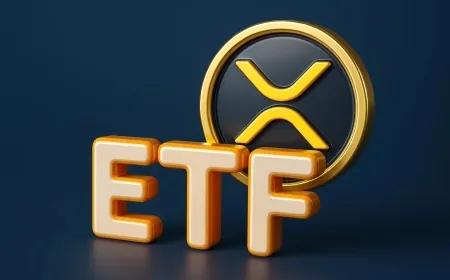Bitcoin Miners Face Hardships After Reward Halving
Reduced Earnings, Increased Difficulty, and ETF Competition Challenge Bitcoin Miners

Bitcoin miners are encountering significant challenges this year, facing reduced rewards, tougher mining conditions, and competition from new bitcoin exchange-traded funds (ETFs).
Leading U.S.-listed mining companies like Marathon Digital and Riot Platforms have seen their stock values fall by around 10% and 33%, respectively, even though bitcoin itself has surged 60% this year, reaching $67,859 after setting a new record in March.
Mining stocks typically follow bitcoin’s price movements because higher bitcoin prices usually mean higher profit margins for miners. However, the launch of 11 bitcoin ETFs earlier this year has shifted investor interest from mining stocks to these ETFs, which track bitcoin's price directly.
"A lot of institutional money has flowed into ETFs instead of mining stocks," explained Pascal St-Jean, president of digital asset management firm 3iQ.
Bitcoin miners perform energy-intensive computations to validate transactions on the blockchain, earning new bitcoins as rewards. In April, the reward for mining each block was halved to 3.26 bitcoins, part of a regular adjustment that occurs about every four years to manage bitcoin’s supply.
As a result, miners' revenue per transaction has dropped from over $192 in March to just $60, the lowest level since last September, according to Blockchain.com. Additionally, the difficulty of mining bitcoin has steadily increased, hitting an all-time high in early May.
"Miners must improve efficiency, often by investing in better equipment," said David Morrison, an analyst at Trade Nation.
According to J.P. Morgan, U.S.-listed miners, who account for 23% of the world’s bitcoin mining power, are better positioned to navigate these challenges due to better access to funding. In the first quarter of 2024, these miners raised over $3 billion through equity financing, the highest amount in two years.
To cut energy costs, some miners are relocating to countries with cheaper energy and more supportive regulations. "The U.S. is less attractive due to potential tax risks," noted Youwei Yang, chief economist at Bit Mining, who mentioned new operations in Ethiopia.
Industry Consolidation and Diversification into AI
With declining revenues, analysts predict an increase in mergers and acquisitions among bitcoin miners. Companies with more capital are likely to acquire smaller, less efficient miners to stay competitive. For example, CleanSpark has expanded by purchasing additional mining rigs and smaller mining facilities this year.
"The market is divided between companies that can access capital and grow and those that might sell due to reduced revenues after the halving," explained Gregory Lewis, an analyst at BTIG.
Some crypto mining companies are also branching out into the artificial intelligence (AI) sector, utilizing their existing computing power for AI and high-performance computing services. Miners like Bit Digital, Hut8, Iris Energy, and Core Scientific are exploring AI services to increase their revenue.
"There are many small-scale bitcoin mining operators, while the demand for AI and data centers continues to grow, creating competition for resources," said Gautam Chhugani, an analyst at Bernstein.
Also Read: Bitcoin Predicted to Reach $1 Million Due to Emerging Phenomenon































































